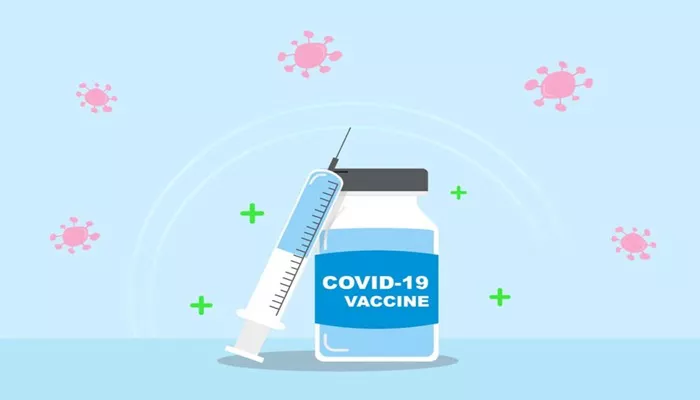Myocarditis, an inflammation of the heart muscle, has emerged as a potential complication of COVID-19 infection. As the pandemic continues, understanding the course and prognosis of COVID-19-associated myocarditis is crucial for healthcare providers and patients alike. In this comprehensive article, we will explore the typical duration of myocarditis following COVID-19 infection, factors influencing recovery, and the importance of proper management and follow-up.
Onset of Myocarditis After COVID-19
Myocarditis typically presents around 2 weeks after the initial symptoms of COVID-19. In some cases, it may occur even later, highlighting the need for vigilance in monitoring patients who have recently recovered from the virus. The exact mechanism by which COVID-19 triggers myocardial inflammation is not fully understood, but it likely involves a combination of direct viral invasion and the body’s immune response to the infection.
SEE ALSO: When to Worry About Myocarditis
Duration of Symptoms
The duration of symptoms in patients with COVID-19-associated myocarditis can vary widely. In mild cases, symptoms may resolve within a few days to weeks with appropriate treatment and rest.
However, in more severe cases, symptoms such as chest pain, shortness of breath, and fatigue can persist for several weeks or even months.
A study published in the Journal of the American College of Cardiology found that among patients hospitalized with COVID-19, the average duration of symptoms was around 15 days. However, it’s important to note that this study included all patients with COVID-19, not specifically those with myocarditis.
In a separate study focusing on patients with confirmed myocarditis, researchers found that the median duration of symptoms was approximately 21 days. This suggests that myocarditis may prolong the overall course of illness in some COVID-19 patients.
Recovery And Long-Term Outcomes
The long-term prognosis for patients with COVID-19-associated myocarditis is still being studied, as the pandemic is relatively recent. However, early evidence suggests that most patients experience a favorable outcome with proper treatment and follow-up.
A study published in the European Heart Journal found that among patients hospitalized with COVID-19 myocarditis, the majority (81%) were considered recovered by their healthcare providers at least 90 days after symptom onset. However, it’s important to note that nearly half of patients continued to report symptoms, and a quarter were still taking daily cardiac medications at this time point.
Another study, published in the Journal of the American College of Cardiology, followed patients with COVID-19 myocarditis for a mean duration of 9.5 months. Over this period, myocarditis occurred in 0.21 out of 1,000 COVID-19 survivors, compared to 0.09 out of 1,000 control subjects. This suggests that while the overall risk is low, COVID-19 survivors do have an increased risk of developing myocarditis in the months following infection.
Factors Influencing Recovery
Several factors can influence the recovery and long-term outcomes of patients with COVID-19-associated myocarditis:
Age: Younger patients, particularly adolescents and young adults, appear to be at higher risk for developing myocarditis after COVID-19 vaccination. However, the impact of age on recovery from COVID-19 myocarditis specifically is still being investigated.
Severity of Illness: Patients who require hospitalization or intensive care for COVID-19 may be at higher risk for developing more severe myocarditis and experiencing prolonged symptoms.
Underlying Health Conditions: Individuals with pre-existing cardiovascular disease or other chronic health conditions may be more susceptible to developing complications from COVID-19 myocarditis.
Treatment: Prompt and appropriate treatment, including medications to support the heart and reduce inflammation, can significantly impact recovery and long-term outcomes.
Importance of Follow-Up
Regular follow-up with a cardiologist is essential for patients who have experienced myocarditis after COVID-19 infection.
Monitoring for signs of persistent inflammation, heart rhythm abnormalities, and changes in cardiac function is crucial to ensure a full recovery and prevent long-term complications.
Current guidelines recommend restricting patients with myocarditis from competitive sports for 3 to 6 months, with a gradual return to activity only after symptoms have resolved, cardiac function has normalized, and there is no evidence of ongoing inflammation or scarring on imaging tests.
Prevention And Risk Mitigation
While the risk of myocarditis after COVID-19 infection is relatively low, there are steps that can be taken to reduce the likelihood of developing this complication:
Vaccination: COVID-19 vaccination has been shown to significantly reduce the risk of infection and severe illness. While myocarditis has been reported as a rare side effect of the mRNA vaccines, the benefits of vaccination in preventing COVID-19 and its complications, including myocarditis, generally outweigh the risks.
Healthy Lifestyle: Maintaining a healthy lifestyle, including a balanced diet, regular exercise, and stress management, can help support overall cardiovascular health and resilience in the face of infection.
Prompt Medical Attention: Seeking medical care promptly if experiencing symptoms of COVID-19 or myocarditis can facilitate early diagnosis and treatment, potentially improving outcomes.
Conclusion
COVID-19-associated myocarditis is a serious but relatively uncommon complication of the virus. While the duration of symptoms can vary, most patients experience a favorable outcome with proper treatment and follow-up. However, the potential for long-term complications and the increased risk of myocarditis in the months following infection highlight the importance of vigilance and ongoing monitoring in this patient population.
By working closely with their healthcare providers, maintaining a healthy lifestyle, and seeking prompt medical attention when needed, individuals can take an active role in mitigating the risks and promoting a full recovery from COVID-19-associated myocarditis.

